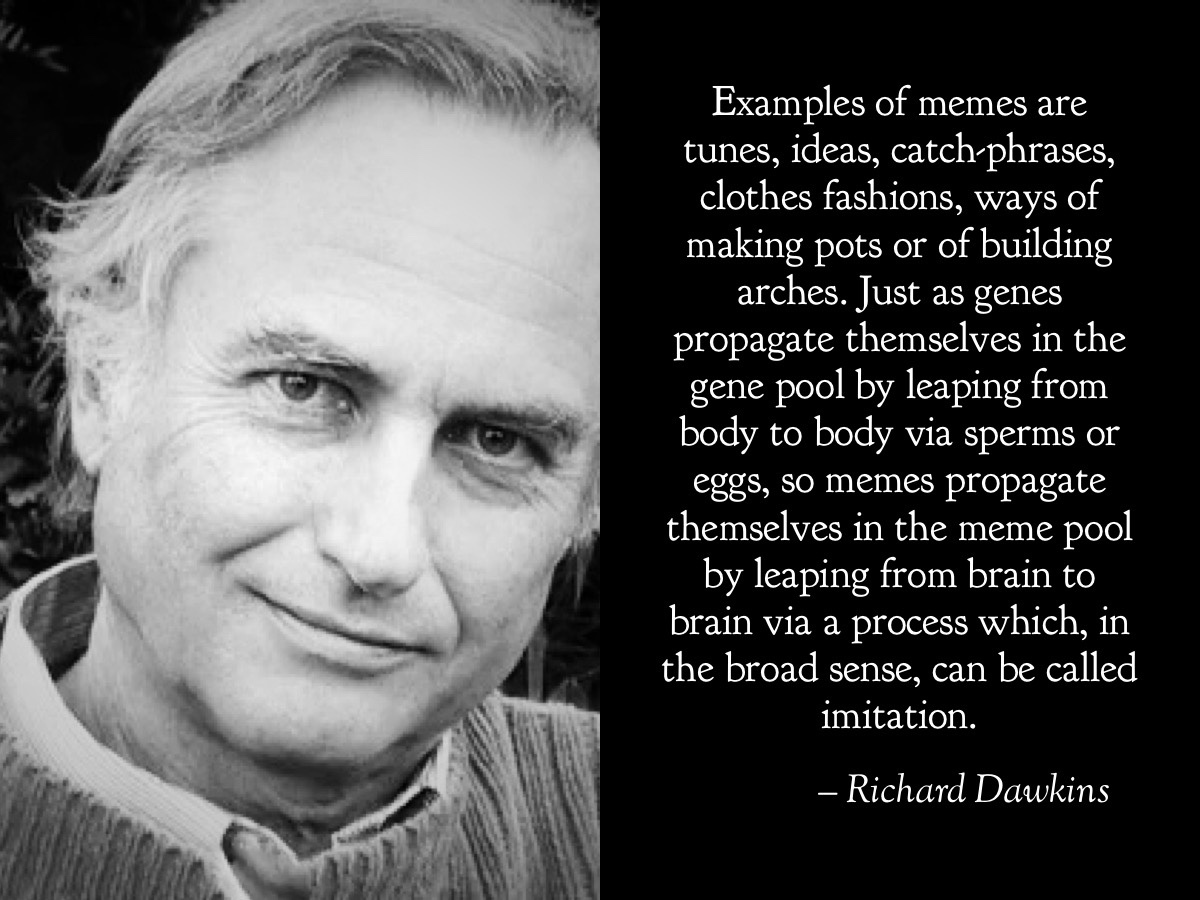this post was submitted on 06 Sep 2023
41 points (100.0% liked)
Memes
45690 readers
790 users here now
Rules:
- Be civil and nice.
- Try not to excessively repost, as a rule of thumb, wait at least 2 months to do it if you have to.
founded 5 years ago
MODERATORS
you are viewing a single comment's thread
view the rest of the comments
view the rest of the comments

It's a bit of yes and no. Dawkins' definition of memes actually pertains to the spread of ideas withing the global consciousness. He attached a 'genetic' model to it in order to rate ideas by order of their succes. For instance Aristoteles' ideas are memetically succesfull as we're still circulating and teaching them nowadays, whilst his neighbour is unheard of and lost to time.
The concurrent rise of internet usage made that simple ideas in image form went viral and people gatting to know about Dawkins' theory got their introduction to the spread and sucessfulness of ideas via a reasonably modern medium. The virality of ideas and the coupling of memetic theory made that the idea 'meme' itself was misattributed. More like a viral strain the 'meme' became shorthand for the image and text based posts that happened to be popular at the time.
So in that reading the meme became the idea, instead of the evlolutionary vector by which ideas propagate. The funny thing is that with Lemmy a whole subset of older internet users that grew up within the context of this birth of the 'Image and text memes' time of the internet are nostalgic to their older meme formats. Which prove that the spread of ideas over time has made it that newer ideas push out the older ones, hence proving the evolutionary nature of 'memes'.
In a way ideas are always memes (in Dawkins' definition) but as a particular form of communication the 'memes' have evolved and will keep evolving. But what a person would consider to be a 'meme' will tell a lot about when this person was growing up on the internet.
Would the older formats be music like rickrolls and the super s drawings?
And cartoons, radio jingles, symphonies, newspapers, pamphlets, clay tablets.
Just like if you procreate, your genes are what benefit. They get passed on and kept 'alive'. For ideas the staying power of the idea and how is gets passed on is it's memetic success.
How long someone name is remembered, is a good measure. Tutanchamun for instance is one of the best known pharaohs, just because his grave was found intact. His life was quite short and insignificant, but due to his remains being found almost everyone knows his name.
Sometimes this is deliberate, rich and important people try to do much to ascertain both their genetic and memetic procreation. Sometimes it's quite accidental as the merchant Ea-nasir, who apparently delivered some sub-par copper ingots and the customer complaint survived: https://allthatsinteresting.com/first-customer-service-complaint-ea-nasir